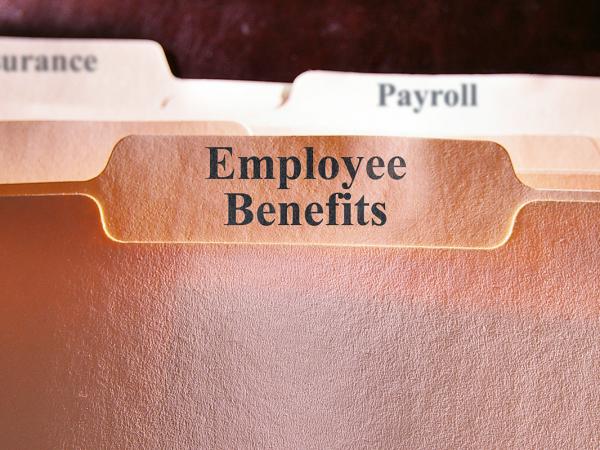Employers: understanding employees' welfare benefits
As an employer, you may wonder why you need to worry about tax credits or universal credit (UC). We give an overview of each on this page, together with some information about how your actions as an employer can impact your employee’s benefits.

Content on this page:
Tax credits
Tax credits are made up of working tax credit (WTC) and child tax credit (CTC). WTC is payable to workers whether or not they have children and CTC is payable to people who are responsible for a child whether they are in work or not.
It is important that you understand the main principles of tax credits, as an employee’s entitlement can depend on the number of hours they work. The criteria are explained further on our working tax credit page.
Your employee will have to provide details about their work to HMRC.
At any time when tax credits are in payment, HMRC may check your employee’s tax credits award. They may ask for things like a P60, P45, P11D.
In addition, HMRC can ask employers to provide evidence in relation to a tax credit claim. If this happens, HMRC will write to you stating what documents they need to see in relation to the employees claim.
HMRC also use information sent to them by employers through the Real Time Information (RTI) system to help finalise tax credit claims. It means that the information you send to HMRC through RTI will directly affect your employee’s tax credits claim. If any information is wrong, their tax credits claim may be wrong. You can find out more about RTI and tax credits on our RevenueBenefits website.
Universal credit (UC) is gradually replacing tax credits and some other social security benefits. UC is now available across the UK and HMRC state that it is no longer possible for anyone to make a brand-new claim for tax credits. Instead, people are expected to claim UC or pension credit if appropriate. Existing tax credit claimants can continue to renew their tax credits and/or add extra elements to their claim. Our understanding is that the majority of existing tax credit claimants will move to either universal credit or pension credit. It is expected that the majority of people who currently claim tax credits, will be invited to move to UC (or pension credit) by the end of the 2024/25 tax year. You can find out more about this in our UC section.
HMRC may use the information you provide on your RTI PAYE submissions, as explained above, to adjust and finalise tax credits your employees are entitled to in the meantime.
Universal credit
Universal credit (UC) is gradually replacing tax credits, and some other social security benefits.
Any in-work UC support your employee is entitled to will be calculated by the Department for Work and Pensions (DWP) using pay information provided by you to HMRC via the Real Time Information (RTI) system where possible.
The key features of UC as far as employers are concerned are:
- Unlike working tax credit, employees do not need to work a minimum number of hours to qualify but they will have a claimant commitment that may require them to seek more work in order to reach a certain earnings threshold. This is called conditionality.
- Monthly UC payments for employees are usually calculated based on RTI data provided to HMRC by employers.
- Payments of UC are usually adjusted automatically based on the amount reported under RTI, so if earnings increase in one month then UC payments might decrease and vice versa.
In short, the implications for employers are:
- Employers do not need to know if their employees are claiming UC and often do not need to do anything differently.
- UC claimants are treated the same way as other employees for payroll purposes. There are no special tax codes or extra reporting requirements.
- Employers don’t need to report earnings separately. PAYE information sent to HMRC is automatically forwarded to the DWP.
- There is no need to notify HMRC if an employee or prospective employee claims UC. when a claimant is accepted as eligible, DWP send an electronic message to HMRC who update their records accordingly.
There are, however, some areas which employers do need to be aware of. These are outlined below.
As there are no hours thresholds in UC, employees may look to increase their hours, or be open to taking on ad hoc overtime.
As RTI data is used to calculate UC each month, it is important that the RTI reports made by employers are accurate. It is also important that they are on time (usually on or before the employee’s pay day but HMRC have specific guidance in place where an employee is paid early or late, for example due to Christmas or their usual pay day falling on a non-banking day):
- contractual pay date is 25th of the month
- Christmas pay date is 20th of the month
- FPS payment date is 25th of the month – in line with contractual pay date.
Failure in this can lead to employees receiving the wrong amount of UC. A late filing, for example, can lead to payments falling in the wrong month for UC purposes. This can lead to uneven UC awards or, if a late submission results in two payments apparently being made in the same month, the DWP may think that the employee’s income has gone up, with the result that the employee’s UC claim could be significantly reduced for that month or even stopped altogether.
There is now a reallocation solution, which is good news for people impacted, however its better to try and avoid the issue in the first place. To be clear, this is for employees to initiate, not employers, however in some instances you may be asked to help, perhaps by confirming information or providing evidence etc.
Employers that are exempt from online payroll reporting need to inform their employees of this, as the employees will be personally responsible for reporting their earnings to the DWP as set out on our PAYE paper filing page.
DWP provides universal credit information for employers on GOV.UK.
Changes to hours or pay
You may sometimes need to make changes to either hours or pay for your employees – for example, if your business is struggling financially.
Any changes to hours or pay can impact on your employees’ tax credits or UC. It is therefore important to tell your employees to seek advice from a local advice agency such as Citizens Advice as to how any potential change may impact on their tax credits or UC.
If you have a disabled employee
Tax credits and UC can be very important for low-income workers, particularly those with disabilities. As well as meaning employees can receive additional money, tax credits and UC can help employees with disabilities to remain in work when they may otherwise have been forced to leave.
More information about employing a disabled person can be found in our guidance here.



